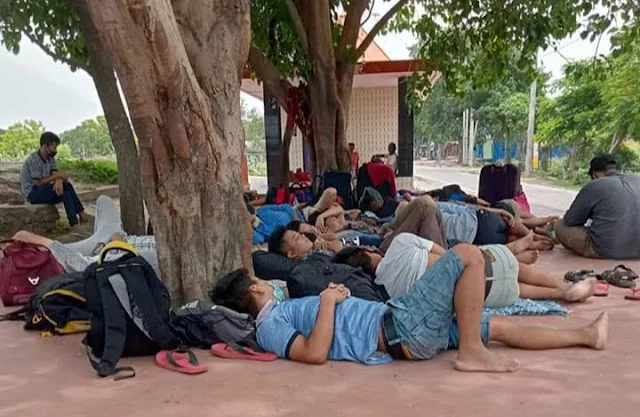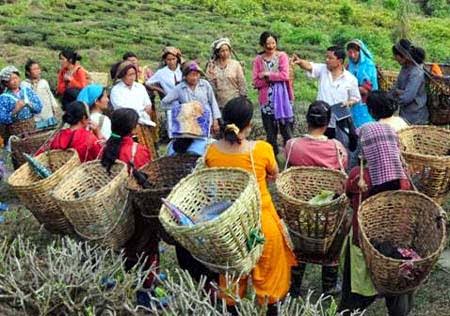 |
| At the lemon grass factory in Bunkulung Busty – Mirik |
Bungkulung Busty resident Divya Subba and her husband Bhupesh Gangotra of Gurgaon, Haryana came from Mizoram last year with a mind to cultivate lemon grass in Bungkulung Busty. They were confident that lemon grass cultivation would offer a sustainable farming alternative to stakeholders. The couple has set up a factory and named their lemon grass farm as ‘Sewaro’, or ‘Namaste’ in the Limbu language, informs factory caretaker Pawan Subba. He further said Gangotra has leased 20 acres of land in Bungkulung for Rs9,000 per acre per year and about 15 farmers have leased out their land.
Subba went on to inform that there are nine varieties of lemon grass. ‘Swarna’ and ‘Krishna’ varieties are grown in Bungkulung, while most tea gardens grow the ‘Citralona’ variety to prepare compost manure. The ‘Swarna’ and ‘Krishna’ varieties contain high quality oil and the climatic conditions of Mirik and Bijanbari are very suitable for the cultivation of lemon grass, said the caretaker.
Lemon grass oil is used in body sprays, room fresheners, phenyl and soaps, to name a few. As the oil has the fragrance of lemon, locals use it to prepare drinks, especially for medicinal purposes. Subba said consumption of lemon grass helps avoid constipation and it also helps in warding off snakes and other poisonous insects.
Gangotra has imparted training to local farmers through an expert on lemon grass oil named Dhular Chand Mahoto from Makhum, Assam. The training programme was aimed at developing skills in cultivation, harvesting, oil extraction and preservation of products.
 |
| Lemon grass growing in the Mirik region. |
Subba said the factory was set up at a cost of Rs6 lakh. The equipment used is very simple and oil extraction is carried out through the process of condensation. He said 3 litres of oil can be extracted by boiling 600 kg of ‘first year’ grass. In the second and third years, 5 litres and 9 litres of oil can be extracted, respectively. The more mature the grass, the higher the quantity of oil extracted.
The oil from ‘first year’ grass can fetch up to Rs600-Rs 1,000 per litre, while that from more mature grass can bring in more than Rs1,000 per litre. Subba said harvesting takes place four times in a year, in June-July, September, February and March.
Lemon grass oil producing factories can be set up at a minimum cost and can prove to be a highly profitable venture for farmers here in the hills, especially in Mirik and Bijanbari.
Source:EOI





